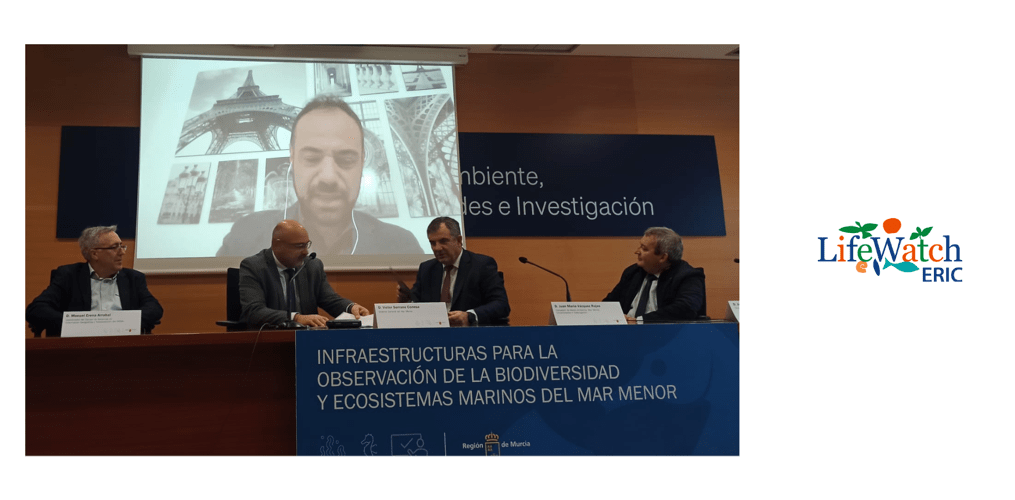
A general protocol of declaration of intent was signed by the Minister for Environment, Mar Menor, Universities and Research, Juan María Vázquez Rojas, and LifeWatch ERIC CTO, Juan Miguel González Aranda in the framework of the JRU LW.ES-Node LW.ES. This protocol is the starting point for the development of joint projects between the two institutions on the Mar Menor, Region of Murcia and Mediterranean Ecosystems.
LifeWatch ERIC will put its infrastructure for the observation and monitoring of Mar Menor ecosystems at the service of the the Regional Government of Murcia, thanks to the signature of a general protocol of declaration of intent between the Minister for the Environment, Mar Menor, Universities and Research, Juan María Vázquez Rojas, and LifeWatch ERIC CTO, Juan Miguel González-Aranda, in the framework of the JRU LW.ES-Node, LifeWatch Spain.
The specific activities foreseen by this protocol will be framed within the constitution of the LifeWatch ERIC Node in Spain, and will focus on the Mar Menor, Region of Murcia and Mediterranean Ecosystems. A Mixed Monitoring Commission will be established to define all pertaining details.
“The objective of this protocol is to integrate research on the observation and monitoring of the Mar Menor ecosystems and its surroundings, into the European virtual infrastructure for science and technology, and to facilitate, through LifeWatch ERIC, the public knowledge of its state. Monitoring data will be disseminated following transparency criteria, synergies and collaborations will be actively identified and promoted, in particular with other research groups from centres and universities specialised in the observation and development of research on marine ecosystems in a broad sense”, explained Vázquez Rojas.
It is within the objectives of this protocol to promote shared access to scientific infrastructures, multidisciplinary collaboration, integration into national and international research networks, and training, focusing on research, observation and monitoring actions of the marine ecosystem in question. Scientific and outreach events may also be organised to bring together experts in different fields of relevance.
In this context, Juan Miguel González-Aranda presented in the conference held in Murcia ‘Infrastructures for the Observation of Biodiversity and Marine Ecosystems of the Mar Menor’, organised by the Government of Region of Murcia, together with the Minister, Juan María Vazquez Rojas; the General Director of the Mar Menor, Víctor Serrano Conesa, and Manuel Erena Arrabal, Coordinator of the Geographic Information Systems and Remote Sensing Team of the Murcian Institute for Agrarian and Environmental Research and Development (IMIDA).